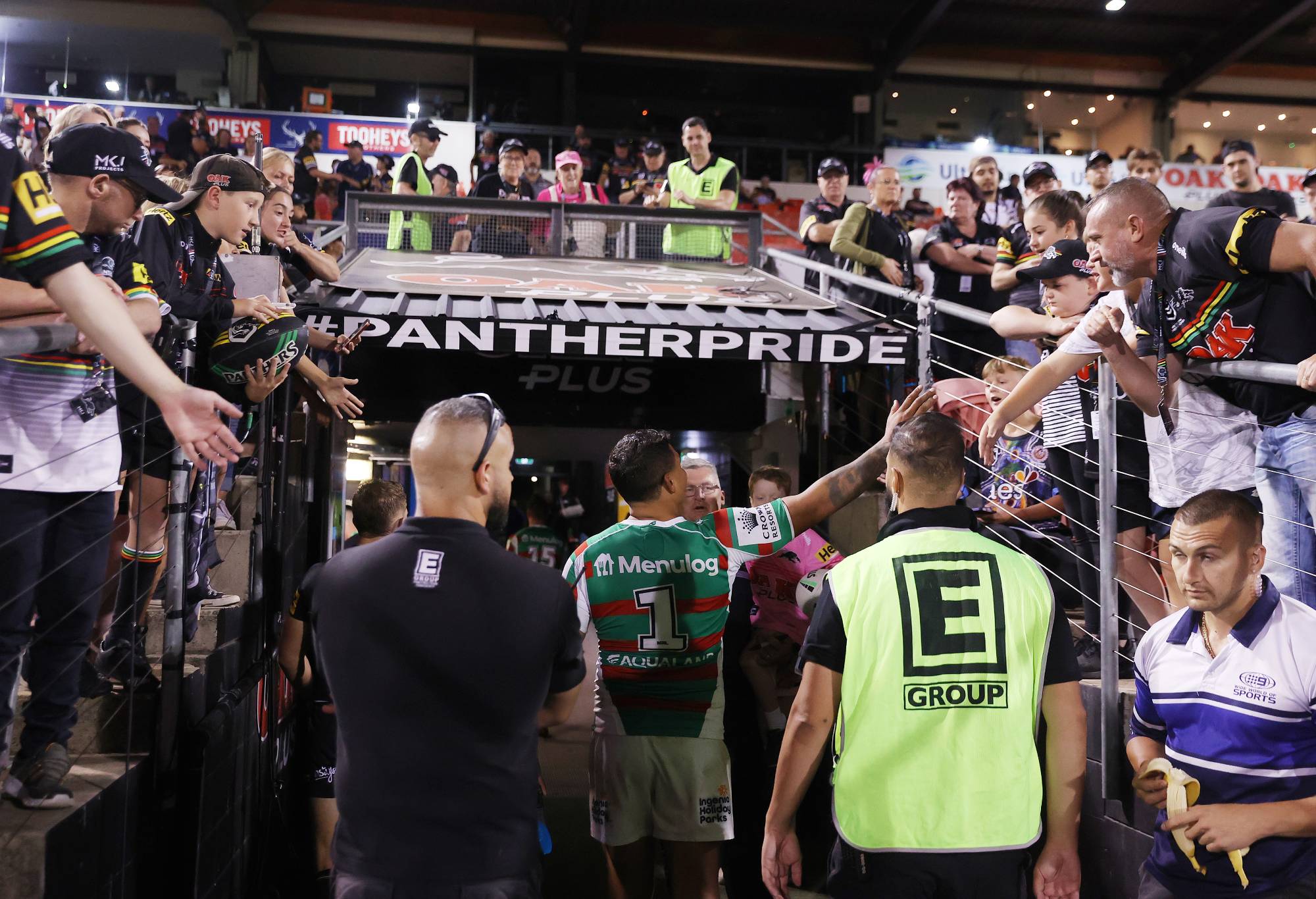LISTEN: 'Should have got 6-8' - Joey slams Milne's lenient penalty for 'so dangerous' cannonball
Agree with Andrew Johns?
Opinion
Unacceptable. This is the word that NRL CEO Andrew Abdo chose to describe the alleged racial abuse which Latrell Mitchell was subjected to last Thursday night at Penrith.
This is a sentiment which I share and which has been echoed throughout rugby league since with several players and coaches with Trent Robinson, Patrick Carrigan, Nicho Hynes and Nathan Cleary speaking out and several clubs releasing statements of their own, including the Canberra Raiders and Newcastle Knights.
I particularly want to highlight the support shown towards Mitchell by Cleary and Jarome Luai given Penrith’s response, which was to share a statement on their website only, making it clear that they had been aware of an incident and had informed the NRL. No further comment was made.
As a whole, it has been really comforting to see such widespread condemnation of this behaviour by so many including fans, media commentators, players and fans.
CLICK HERE for a seven-day free trial for your favourite sport on KAYO
But this behaviour cannot be ignored. It would be incredibly ignorant to suggest racism is a ‘rugby league problem’. Unfortunately, given Australia’s history and our approach to reconciliation racism is an ‘Australia problem’ and it is not going to be solved by rugby league.

(Photo by Cameron Spencer/Getty Images)
But that doesn’t mean that rugby league cannot take a leading stance and additionally, use its power as one of the most loved sports in the country to drive change.
There is a role for all of us here and I encourage each of us to do our part. The amount of work still to be done in this space was highlight by the outrageous response by some sections of the media to the 2020 NRL campaign which featured Mitchell draped in an Indigenous flag. How this was described as ‘political’ still baffles me.
The person who made the comment was a 15-year-old and NSW Police issued a statement on Thursday to say the boy would not face charge but had been given a warning.
It’s still unclear what sanctions the NRL will impose and indeed, what action Mitchell himself may want to take.
But in my view, what the NRL does next is extremely important.
I am someone who has questioned the enforceability of any sanction the NRL can impose.
A ‘life ban’, is extremely challenging given the lack of facial recognition technology at most stadiums. It may work at some of the more recently built stadiums, but at suburban ground there is little to no chance of a ‘life ban’ being able to be enforced.
The same goes with cancelling a membership. Whilst you might cancel a membership belonging to ‘Person A’ that does not stop that person for signing up for a membership using the name ‘Person B’.
Despite challenges with enforceability, the intent is clear. This behaviour is not welcome in rugby league.
When it comes to significant sanctions like this, some have called for leniency based on the perpetrator’s age.
This is interesting to me given that leniency based on age is not something that is embedded into Australia’s legal system.
In Australia, the age of criminal responsibility is just 10 years old. What this means is that at age 10, children are considered by law to have understood the wrongness of their actions and as a result can face criminal charges.
Australia has one of the lowest ages of criminal responsibility in the world and has faced criticism from the United Nations for its position.
Devastatingly, this age of criminality has a disproportionate effect on Indigenous children who are locked up at 17 times the rate of non-Indigenous children. Between 2017-2021, 65 per cent of children under 14 who were imprisoned were Indigenous, with 68 per cent of those children not having been convicted of a crime.
Education is also a path that has been taken in the past. But it is not the role of Indigenous people to take on the burden of educating all of us.
Given that the perpetrator is just 15, it is about far more than educating that person. Racism is a learned behaviour. Where did he learn this behaviour – at home? Online? At school? Any education would need to impact his circle at a much broader level. Does this send a strong enough message?
We have seen the devastating consequences of what happens when sporting codes get it wrong.
Cue the AFL and the way the booing of Adam Goodes was handled a decade ago. You could argue the situation has been addressed now with the AFL issuing an apology in 2019. It was too little too late, especially considering the hurt Goodes faced during the period when he took a strong stance against racism in the AFL and his eventual decision to leave the game.
I do not want this for Latrell Mitchell and I certainly don’t want it for any other Indigenous player.
When it comes to diversity and inclusion, my view is rugby league overall, does a brilliant job of celebrating our Indigenous players. Much of this is a nod to the legacy created by Arthur Beetson.
But this doesn’t happen overnight and as the code continues to grapple with other diversity pillars, including pride, I hope that in time each person involved in the rugby league community is celebrated for who they are and the qualities and talent they bring to our incredible game.